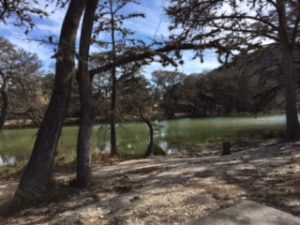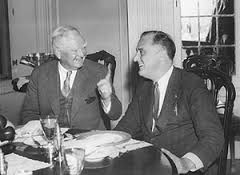This is the latest in an occasional series of blog posts commenting on upcoming retirement.
GARNER STATE PARK, Texas — The picture attached to this blog post tells the story: this place is as tranquil and quiet as it appears.
This park is nestled in the gorgeous Hill Country of Texas, just north of Uvalde, which is the hometown of the person after whom the park is named.
I refer to the late John Nance “Cactus Jack” Garner, the former vice president of the United States during the Franklin D. Roosevelt administration. It was Garner who once famously declared that “the vice presidency ain’t worth a bucket of warm piss.”
They didn’t call him Cactus Jack for nothin’, you know.
My wife and I have decided that state parks are the way to travel through this vast state of ours.
We have purchased a state park pass, which for a year allows us access to any state park in the state without paying an entrance fee. The nightly fee for camping there in an RV varies: $15 to $20.
I’ve complained for decades now about Texas state government. It spends too little on this, too much on that. It devalues public education and seeks on occasion to legislate morality.
Blah, blah, blah.
I am a big fan of the Texas Parks and Wildlife Department, the agency that runs our state park system.
Our state parks are second to none. Well, perhaps that’s just my opinion, given that I haven’t been to state parks in every state in the Union. I’ll just settle on declaring that Texas’s state parks are inviting.
They’re well-appointed, clean, well-groomed. Park staffers are full of that legendary Texas hospitality.
There’s a decent chance my wife and I — along with Toby the Puppy — will visit most if not all of them as we continue to enjoy this new lifestyle called “retirement.”


